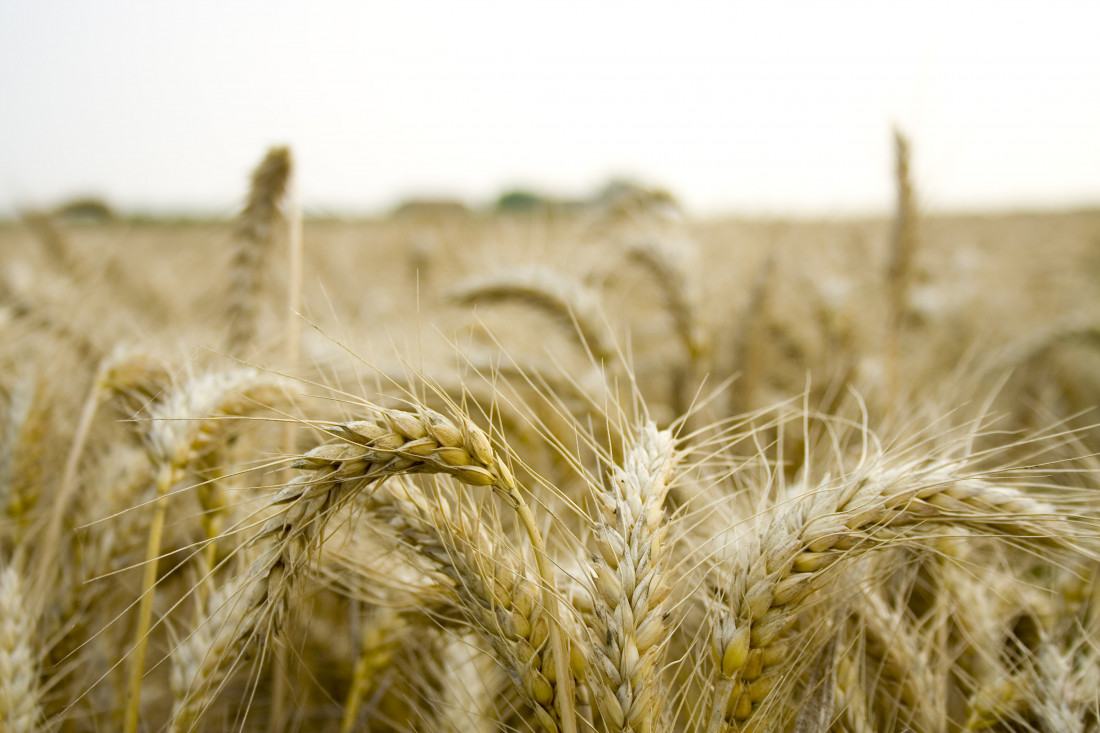While the ability to turn agricultural waste, such as corn stalks, wheat straw and husks, or even sewage waste, into industrial chemical feedstock has long been achievable in the lab, full scale commercial production has been slow to progress.
While bioethanol sourced from corn, sugar beet or cane, potatoes, sunflowers, sorghum, fruit, and other biomass feedstocks have had greater success, the industry’s future is still uncertain due to these products uses as food or animal feed. By focusing on wheat straw waste, chemical industry ecologists and entrepreneurs are hoping to improve the economics by gaining free and easy access to chemical raw materials.
As the wheat stalks are inedible to animals, they are typically only used as livestock bedding or are left in fields in an attempt to return their nutrition to the soil.
As the scientific journal, Phys.org observes, “The development of new bio-refining technologies based on agricultural waste is seen as key to reducing Europe’s dependency on fossil-based products. According to a White Paper by the International Council on Clean Transportation, about 144 million tonnes of wheat residues accumulate each year in the EU.”
Part of this development is the EU-funded OPTISOCHEM project, which is making good progress in transforming waste straw into bio-isobutene (bio-IBN), a chemical feedstock that is a precursor to numerous other industrial chemical products.
The basic chemistry of the process involves converting wheat straw into hydrolysate which is then fermented into isobutene, which can be used to make a wide-range of industrial chemicals.
The enterprise leading the project, is called Global Bioenergies. Their website outlines the value in making a success of this method, stating that, “isobutene, one of the major building blocks of the petrochemicals industry, represents a market worth $25 billion and may one day address an additional market worth $400 billion.” Noting that already, “15 million tonnes are produced every year and are turned into plastics, rubbers and fuels.”
Now a key step on the road to success has been made, as Global Bioenergies has delivered the first sample of isobutene made from wheat straw to industrial chemicals giant INEOS for inspection.
As Jean-François Boideau, EMEA Commercial General Manager at project partner INEOS Oligomers, made clear in a recent press release, “To date, we have received several batches of bio-isobutene from Global Bioenergies for qualification purpose[s], and the quality is promising.”
Adding that, “During the next phase of the project, INEOS is ready to evaluate conversion of additional quantities of bio-isobutene into downstream products in order to assess the potential of this bio-based feedstock as a building block for end consumer applications.”
Encouraged by the results, Global Bioenergies is now focusing on increasing production to more industrial levels. As the company’s COO, Frederic Pâques, states, “We expect to produce several tons of bio-isobutene on this new non-conventional feedstock in the remaining periods of the project.”
The project has further been boosted by the April 2019 announcement of a €135m investment surge from the Bio-Based Industries Public-Private Partnerships (BBI JU). Their goals, as listed on the partnership’s website include:
- Increasing the yield of targeted bio-based product(s) by more than 20 percent compared to state-of-the-art processes.
- Reducing the production costs of bio-based products by 10-20%, compared to current market situation.
- Reducing energy consumption by more than 30% for bio-catalytic processes as compared to state-of-the-art production processes.
- Delivering savings, in terms of CO2 emissions per kg product by more than 20% for bio-catalytic as compared to state-of-the-art production methods.
And while these numbers may sound insignificant in a chemical industry that is dominated by fossil fuels, the ultimate rewards are well worth both the effort and the investment.
As analysis conducted by Bernard Chaud, Global Bioenergies’ director of industrial strategy, found, “If just 48 million of the 144 million tonnes of wheat straw waste produced in the EU annually was collected, it could produce 21 million tonnes of sugar that could feed 100 commercial biorefinery plants to produce a steady supply of biochemicals for use by different industries, including biofuels, and substitute the equivalent of 35 million barrels of fossil fuel per year.”
Furthermore, it would provide a boost to rural economies, as chemical plants would be located in the countryside near the fields where the feedstock is, bringing jobs to many of Europe’s poorest regions.
“It offers an additional revenue stream,” said Chaud in a recent interview with Phys.org. “(Farmers) will not only sell the grain, but also the straw.”
While the business model may sound simple, the practicalities of breaking down cellulose isn’t easy. As discussed in earlier SPOTCHEMI articles, numerous breakthroughs have been made in developing enzymes that are more efficient or resilient, but despite the low-cost raw materials, lowering costs remains an ongoing project.
As the environmental journal, Earth Island, reports “Over the past decade, the National Renewable Energy Laboratory [NREL] has brought down the cost of cellulosic ethanol from about $10 a gallon to $2.15 a gallon, primarily by bioengineering better enzymes.”
Employing cheaper enzymes with cheaper chemical feedstock will make for a more profitable bio-chemical industry.
But while profitability is at the heart of all chemical businesses, removing dependency on fossil fuels must also remain a goal, and one that remains in sight. As the BBI JU websites states, today’s bio-based chemical products are, “… comparable and/or superior to fossil-based products in terms of price, performance, availability, and environmental benefits. … [And] will on average reduce CO2 emissions by at least 50 percent compared to their fossil alternatives.”
Photo credit: Freeimages

